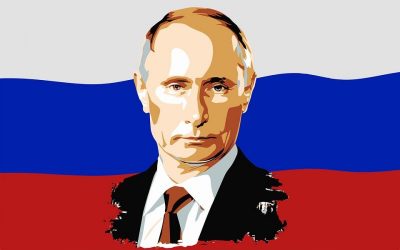Putin’s Trip to Italy Is Actually Pretty Important. Meetings with Pope Francis

President Putin’s upcoming trip to Italy is much more important than some people might think because it represents further progress being reached on a “New Detente”, and could help improve Orthodox-Catholic relations after his scheduled meeting with the Pope.
***
President Putin will be in Italy later this week to meet with the country’s leadership, which has remained surprisingly pragmatic towards Russia across administrations despite heavy American pressure for Italy to distance itself from the Eurasian Great Power. Trade ties are improving against all odds seeing as how the EU’s anti-Russian sanctions are still in place, which speaks to the interest that Italy has in carving out an independent niche for itself in the EU. This role has become even more prominent after last year’s elections saw the rise of a EuroRealist government to power, one that hasn’t shied away from supporting its sovereignty. It’s therefore fitting that the Russian leader will be paying a visit to this Southern European country, which comes amidst the nascent “New Detente” between Moscow and Brussels.
French President Macron surprised the world last month when he said that he wants to restore relations with Russia, after which Prime Minister Medvedev visited Paris to hold talks with his counterpart at the end of last month. The two premiers pledged to more actively cooperate with one another, and whether it was just a coincidence or otherwise, their meeting occurred around the same time as the Parliamentary Assembly of the Council of Europe (PACE) reinstated the Russian delegation’s rights after having frozen them for half a decade already following the Crimea’s reunification. Russian-EU relations are therefore noticeably on the upswing, at least when it comes to Moscow’s ties with the bloc’s most influential Western European members (Germany, France, and Italy), which creates a positive backdrop to President Putin’s visit to Rome.
Observers shouldn’t expect any dramatic outcome from this trip but should instead appreciate the pragmatism of yet another country warming up to Russia and refusing to submit to American pressure. This doesn’t by any means signify that Italy is “anti-American” — after all, Deputy Prime Minister Salvini recently wrote on Facebook that he wants his country to be “the first, most solid, valid, credible and coherent partner for the United States” — but just that it won’t sacrifice its national interests at the behest of a foreign power. Instead, Italy is signaling that it would like to “balance” between the US and Russia and position itself to play a key role in facilitating a “New Detente” between them that would also elevate its diplomatic position in the EU. It’s not unforeseeable that Italy could make some progress in this respect either, hence why it’s worth President Putin’s valuable time in traveling there.
He won’t just be meeting with that country’s representatives, but will also have his third meeting with Pope Francis, which Reuters pointed out will be their first one since the Catholic leader met with Patriarch Kirill in 2016 during the unprecedented meeting between the heads of these two Christian sects since their millennium-old schism. This obviously creates the opportunity for President Putin to build upon the progress that was previously made and possibly even invite the Pope to Russia, especially seeing as how he’s already recently visited several Orthodox-majority countries such as Romania, Bulgaria, and Macedonia. It’s difficult to predict whether such an offer will be extended and if the Pope would even commit to such a trip if he was indeed invited, but since intra-Christian relations are somewhat on the upswing, then it might be possible.
Of course, serious geo-religious differences still remain between the two, especially over Ukraine, but those could possibly be surmounted so long as the political will is present on both sides. In any case, the simple optics of President Putin meeting with the Pope during the nascent “New Detente” between Russia and the EU gives off a positive image that powerfully shows just how much the West’s attitudes towards the Eurasian Great Power are changing. The US’ infowar narrative that President Putin is a “pariah” will no longer be as convincing for most Westerners as it previously was since they’ll see with their own eyes that the spiritual leader that most of them respect is hosting the Russian President, which in and of itself makes his upcoming trip to Italy a lot more important than people might have initially thought.
*
Note to readers: please click the share buttons above or below. Forward this article to your email lists. Crosspost on your blog site, internet forums. etc.
Andrew Korybko is an American Moscow-based political analyst specializing in the relationship between the US strategy in Afro-Eurasia, China’s One Belt One Road global vision of New Silk Road connectivity, and Hybrid Warfare. He is a frequent contributor to Global Research.

